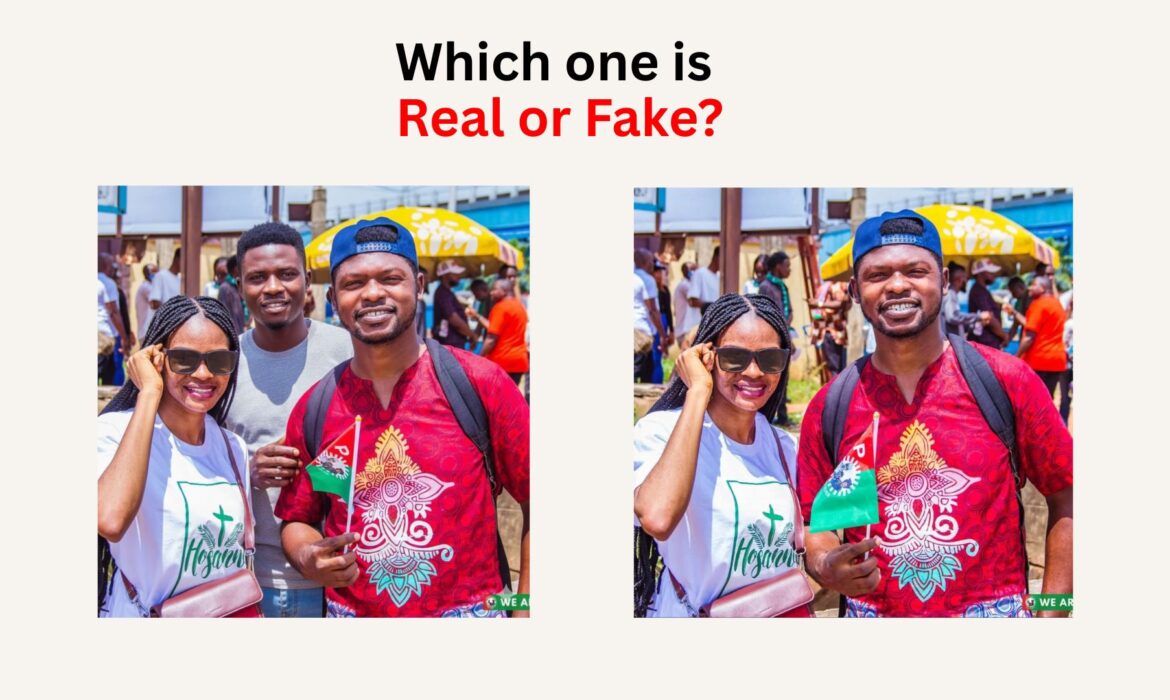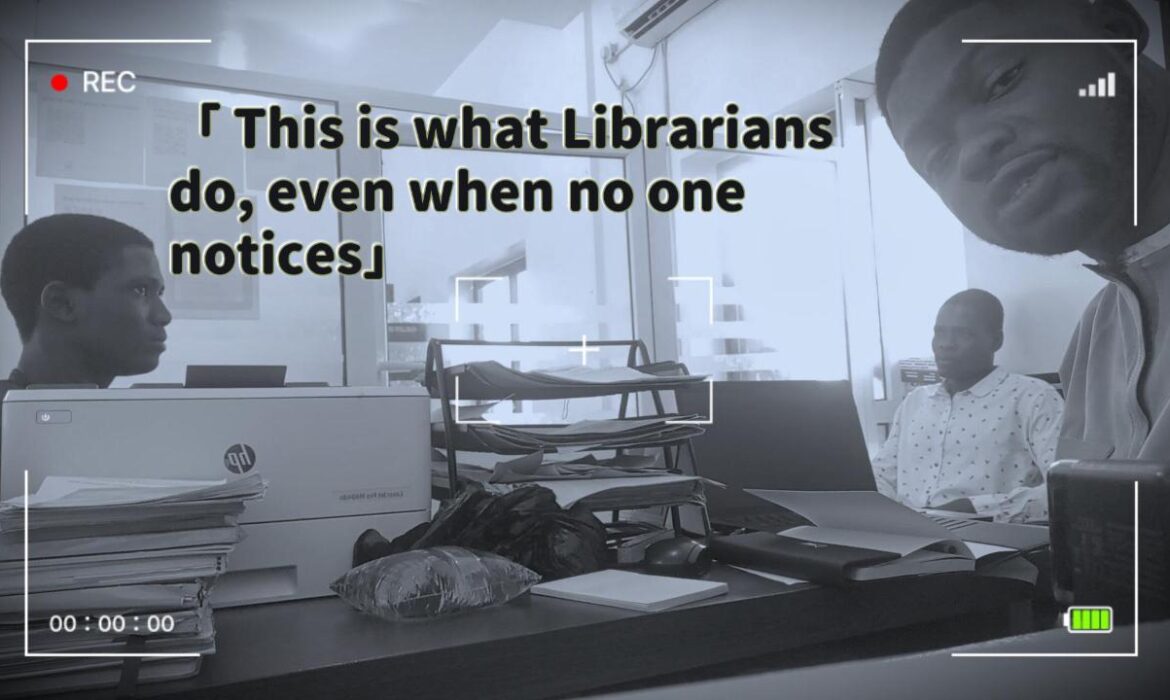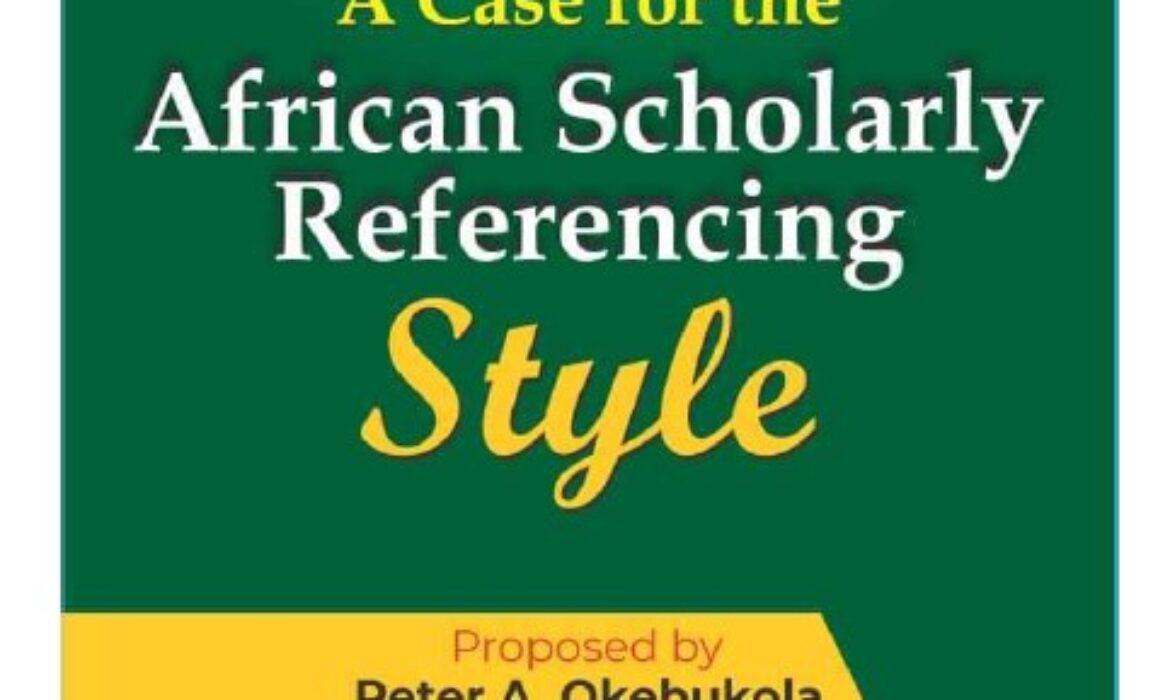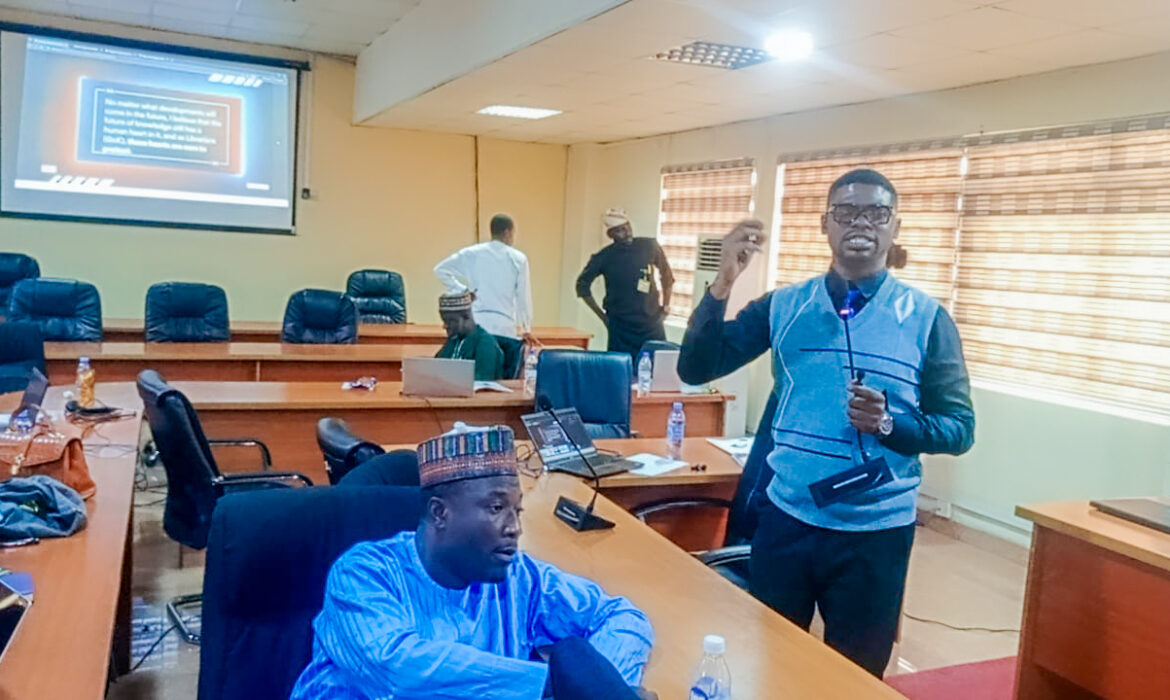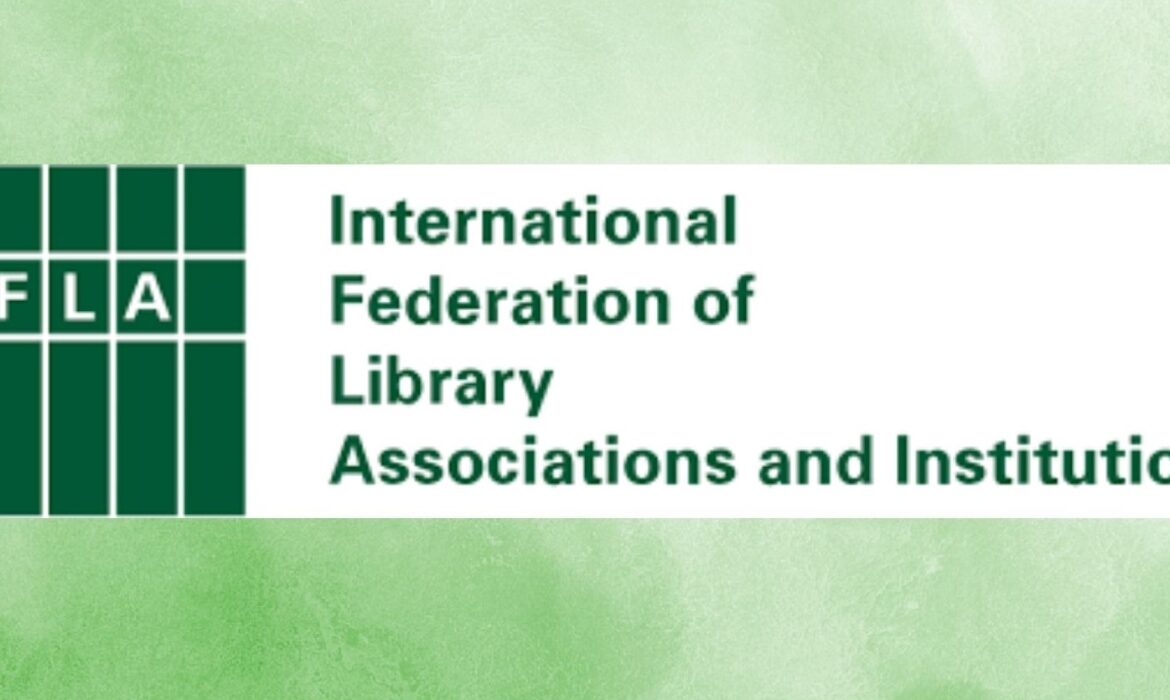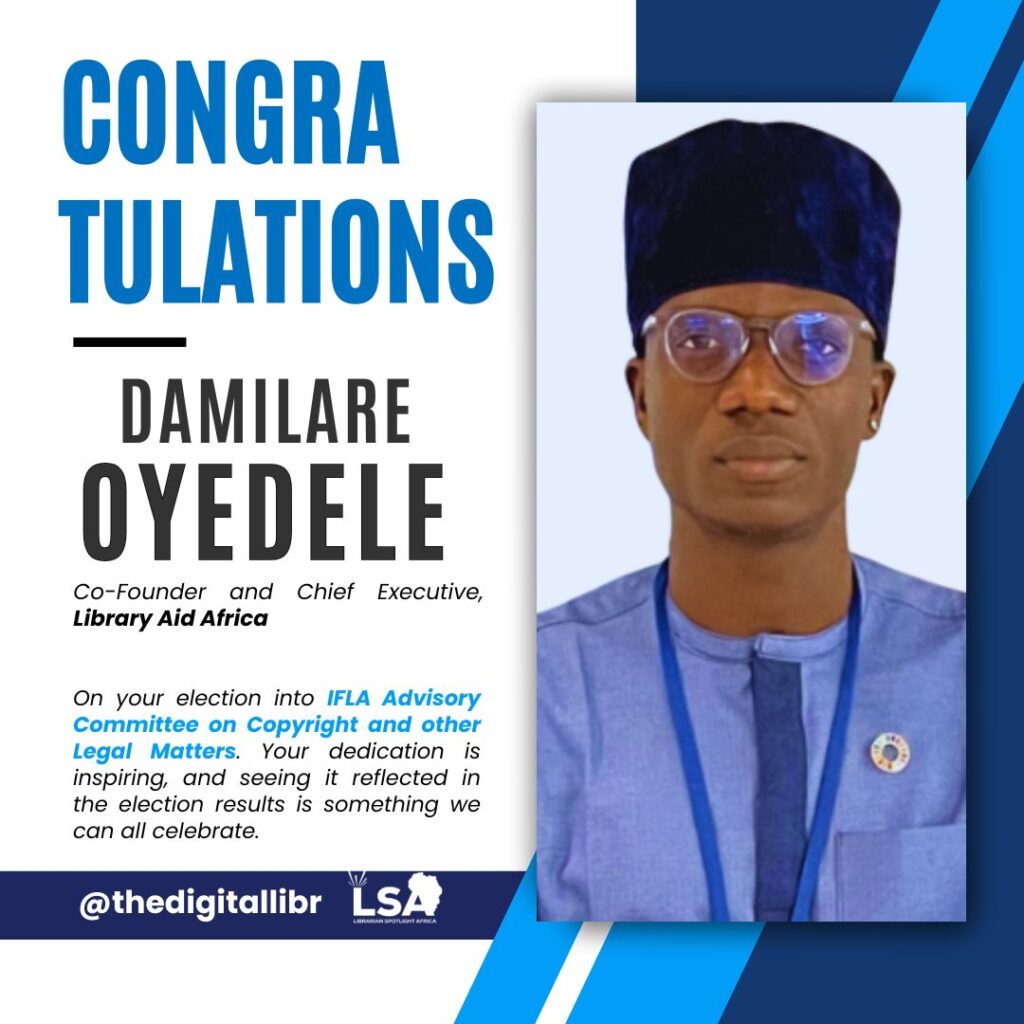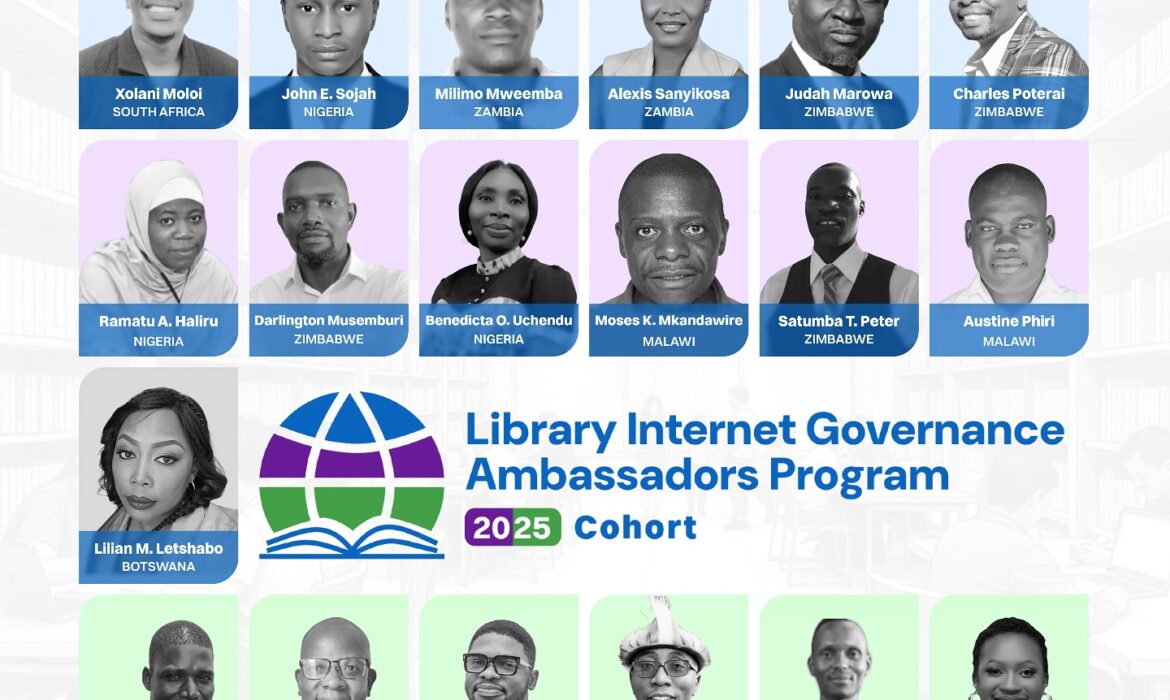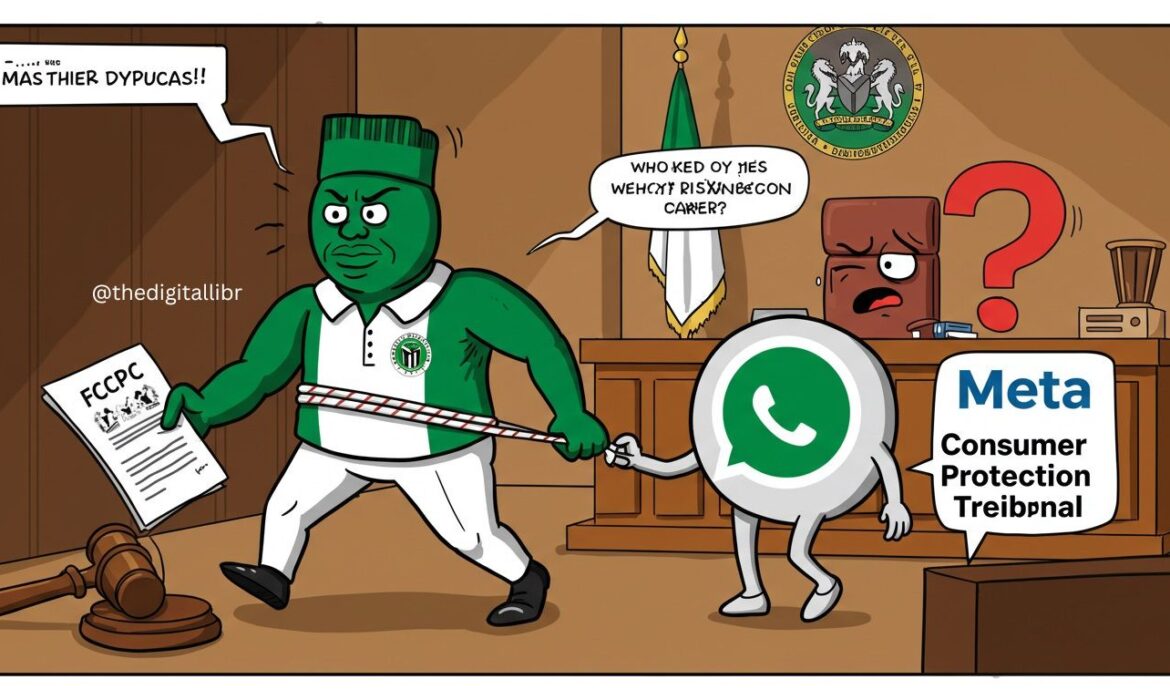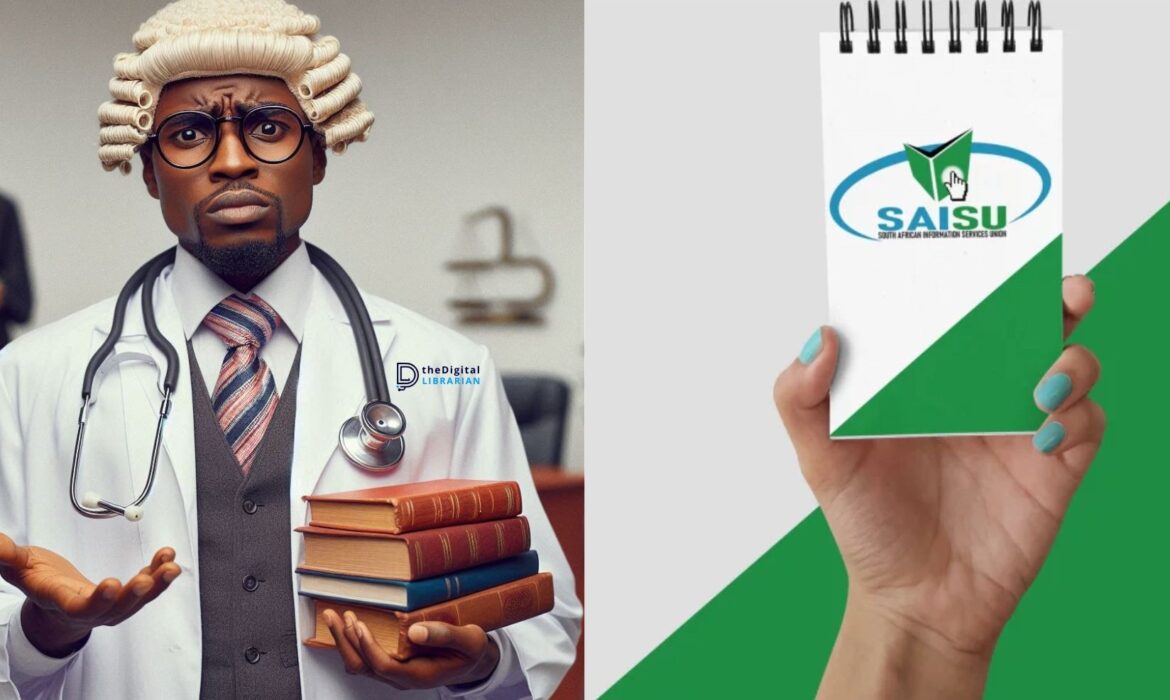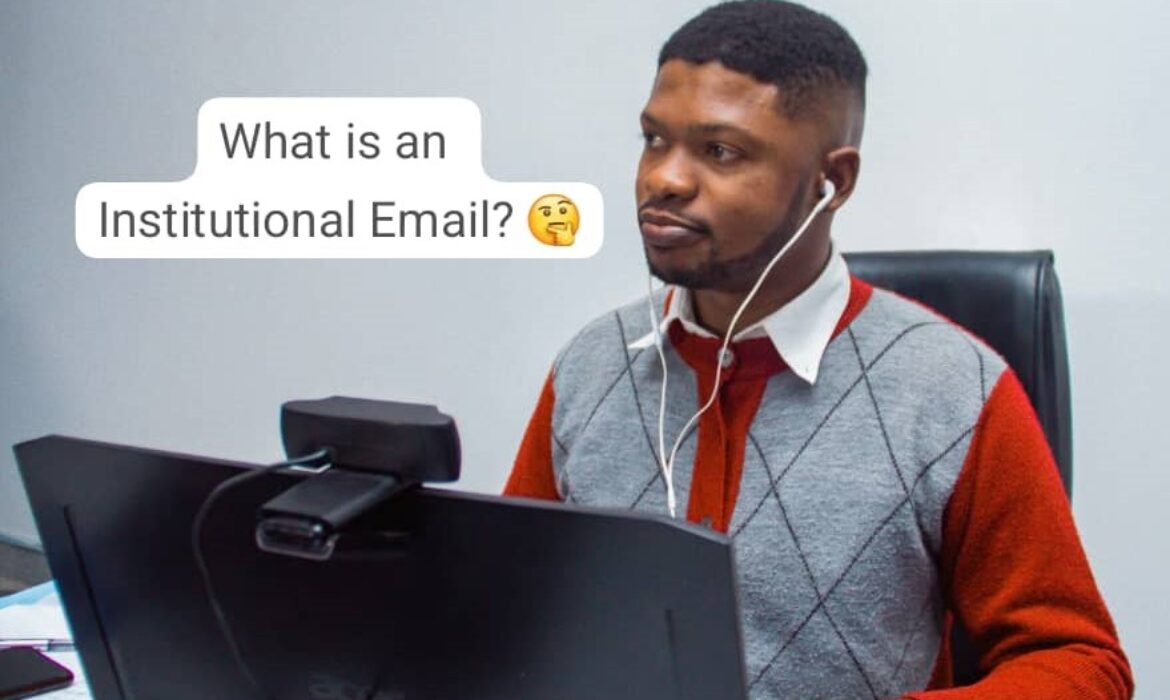SEEING IS NO LONGER BELIEVING!
Today, January 28th, being World Data Privacy Day, I decided to run a small AI experiment after working hours. Take a look at the two images attached to this post: One of them is an original photo and the other is an AI-generated version where you’ll see that a third person was added seamlessly into the group.
It took me less than 2 minutes to change the state of the photo.
Today, the internet is now flooded with AI Slop and deepfakes.
It’s a great idea and usually fun for many content creators, but this ability raises a serious question for all of us, especially in this year, 2026: ‘Who owns our digital identity and how do we control what we put out there?’
In another experiment, I tried to push the AI further by asking it to create a specific physical interaction (like a peck on the cheek). The AI refused. So, I assumed that there was some sort of layer of Data privacy or safety guardrails that may have been built into the model, which prevents it from creating non-consensual or synthetic intimate moments that never happened.
How I see it though, is that, we still need to be vigilant, because… anyone could outsmart these AI systems through prompt injection techniques that makes the model thinks its doing something ethical.
I couldnt think of a better day than today, dedicated to mark #DataPrivacyDay, for us to remember that Consent is very important.
Just because generative AI platforms like Gemini’s Nano Banana, Grok, and other platforms allows us to add or remove people or manipulate images and videos doesn’t mean we have the right to do so without permission. It all boils down to the Responsible Usage of AI. We must acknowledge that these tools can easily be used to create false narratives or proof of events that may have never happened.
Considering the theme for the celebration, ‘Take control of your Data’, let us endeavour to be very, very mindful of the data we share, the tools we use, consciously protect our digital identities, and endeavour to consult with Librarians to learn about Responsible AI/Digital Literacy.
– Sylvester Ebhonu (TheDL)
NO BOOKS WERE SHELVED, BUT LIBRARIANSHIP HAPPENED HERE
Today (5th January 2026) was supposed to be a ‘lazy’ first day back at work, because I was still trying to adjust myself and put my to-do list for the week together when my first library users of the year 2026 walked in. I honestly thought they had come to exchange pleasantries. Happy New Year. Small Talk, and then they’ll go.
But they actually needed help.
I offered them a seat and they explained that they needed clarification on a group project they had been given in a course, with just two weeks to submission. Specifically, they needed reviews on their idea, some guidance on creating graphics, and suggestions on the right resources to use.
I asked for their permission to record the session without the audio, just the process and they agreed.
What followed was not what they expected.
Just as we are taught in library school, users often do not express their real information need at first. It is through careful questioning and professional listening, what we call the reference interview — that the real need becomes clearer. They had actually come with an idea they felt confident about. Innovative, yes. But as they explained it, it became obvious that it did not fully align with the goal of the assignment. That only became clear because I did not interrupt them by rushing to solve the problem and this changed the direction of the session.
Now, this short, silent video captures what a real reference and consultation moment looks like. Nothing was rehearsed, it was just librarianship in practice.
That listening changed the direction of the entire session. Now, this short, silent video captures what a real reference and consultation moment looks like. Nothing was rehearsed, just librarianship in practice.
There are lessons here that I hope librarians, LIS students, and even those outside the profession may find helpful:
- Librarians listen before they advise: The solution didn’t come from talking first. It came from making the student comfortable and understanding their problem (assignment) properly. Listening to them helped in making the gap visible.
- Understanding the assignment matters as much as understanding the topic: Many projects fail not because students lack ideas, but because the ideas do not answer the question that was asked. Helping users see that distinction is part of our work as Librarians.
- Librarians think on paper, not only in their heads: A pen, a jotter, or an internet enabled device/computer is a librarian’s companion. Note taking is a serious deal for us. I summarized key points as we spoke. At the end of the session, they relied on my notes and asked to take a photo to guide their next steps.
- With Librarians, teaching naturally happens: There was no official lecture or presentation of slides, yet learning happened. This is one thing I love about librarianship. We always… By the end of the session, they understood why their original idea needed adjustment and how to move forward with clarity.
- Librarianship is relational: Nowadays you find most students relying on ChatGPT for brainstorming on related issues like this. They could easily have searched online for clarity. But what happened here was not just information delivery. It was context, judgment, reassurance, and direction provided by a human librarian. This experience challenges the idea that technology can replace the librarian’s role.
- Ethics and consent are part of professional practice: The recording only happened after permission was given. No private details was shared and respect for users is not optional, even when documenting impact.
- Evidence of impact is very important: In some environments where people say librarians do nothing, evidence helps you speak. For many years, I have used reference interview forms to document user needs and outcomes. This year, I hope to experiment other responsible ways of capturing impact.
So, this was how my first day back at work looked like:
- No books were shelved.
- No one was shushed.
- No cataloguing
- But Librarianship happened 🤓!
Sylvester Ebhonu (TheDL)
Amiralty University of Nigeria, Ibusa
Africa has taken a Bold Step: Launches the African Scholarly Referencing Style (ASRS)
By Sylvester I. Ebhonu, Admiralty University of Nigeria
Emeritus Professor Peter Okebukola’s influence in African higher education is indeed difficult to overstate. There are over 27 referencing styles globally, and none of them originates from Africa. As reported by Punch Newspaper on the 2nd of December, Okebukola is set to formally launch the African Scholarly Referencing Style (ASRS), which will be the first referencing style conceived, developed, and owned by Africa. My first thought about this was that this is what academic independence should look like.
Over the years, academic institutions, researchers, and librarians have worked within referencing systems that are entirely shaped by Western epistemologies. As useful as the popular APA, MLA, Chicago, and Vancouver styles are, they were designed without the African intellectual landscape in mind. They do not consider our indigenous knowledge, folklore or the kinds of grey literature that often features the richest insights on Africa. So we have always tried to fit in our knowledge into the frameworks created by others, and this announcement of ASRS changes that narrative, because how do you explain contributing immensely to global knowledge, yet your intellectual traditions remain underrepresented in the very systems used to validate scholarship. This is one quiet and structural way that epistemic marginalisation happens, and most times without resistance, because we do not have our own frameworks.
The fact that ASRS will be 95% aligned with global standards while introducing meaningful African adaptations is really great. So the new style will not be entirely different, as students/scholars will get to still work with something familiar, but African. The beauty of the initiative is in the 5% addition where Africa gets to intentionally inscribe itself:
- Citing oral knowledge.
- Acknowledging custodians of traditional wisdom.
- Recognising community voices.
- Making space for African languages.
- Documenting institutional archives and grey literature that rarely get global visibility.
I see this innovation as a significant shift in African scholarly communication. Of course, ASRS is not the sole solution to the structural challenges we face. Africa still contends with limited open access adoption, under-indexed journals, inadequate digital infrastructure, and persistent visibility gaps for indigenous scholarship. But even in the midst of these realities, ASRS represents a bold and necessary step toward reclaiming our scholarly identity. Introducing or announcing the new referencing rules will not be sufficient, it will definitely need critics, contributors and people/systems that will adopt them.
Librarians are the custodians of knowledge organisation, and if anyone is positioned to give life to the ASRS, it is the library community. No matter how ground-breaking a referencing style, it will not be easy to implement across Africa. We all have to first see it as a collective win for all of us because this can strengthen the discoverability of African scholarship in indexing systems. It could bring some coherence to how African sources are cited. So, as someone committed to strengthening digital literacy, visibility, and intellectual identity across the continent, I see ASRS as a big turning point if it gets the required collective support.
This is an invitation for African Librarians to rethink how we organise knowledge, and it brings with it, an opportunity for us and academics to lead a great movement that future generations will benefit from, because this isn’t just about Okebukola. Librarians are encouraged to:
- Get a copy of the final version of the Concept Note on the African Scholarly Referencing Style (I got mine delivered today via email from the author himself).
- Follow the updates closely
- Review it and offer professional input and constructive critique
- Participate in pilot studies
- Train students, faculty, and researchers when the time comes
- Advocate for its inclusion in theses, journals, and institutional policies
- Ensure that African knowledge is represented with dignity and accuracy
The ten-year deployment plan announced for ASRS is quite practical, because this will definitely not be easy without collaboration, its going take a long time before the awareness is created, then integration into our systems and eventually global recognition. The good news however remains that the world will learn from a referencing style that carries the imprint of our history, our languages, our communities, and according to Okebukola, “it is a declaration of capability, and a bold stride towards academic self-definition for the continent”.
What are your thoughts on the African Scholarly Referencing Style (ASRS)? Do you see it as timely, transformative, or long overdue? Your perspective matters.
AULNU WORKSHOP REFLECTIONS: WHAT ONE PARTICIPANT TOOK AWAY
I just read Dr. Azeez Adeoye’s reflection on the AULNU–NULIB workshop, concluded yesterday in Abuja, and it’s exactly the kind of feedback every trainer hopes for.
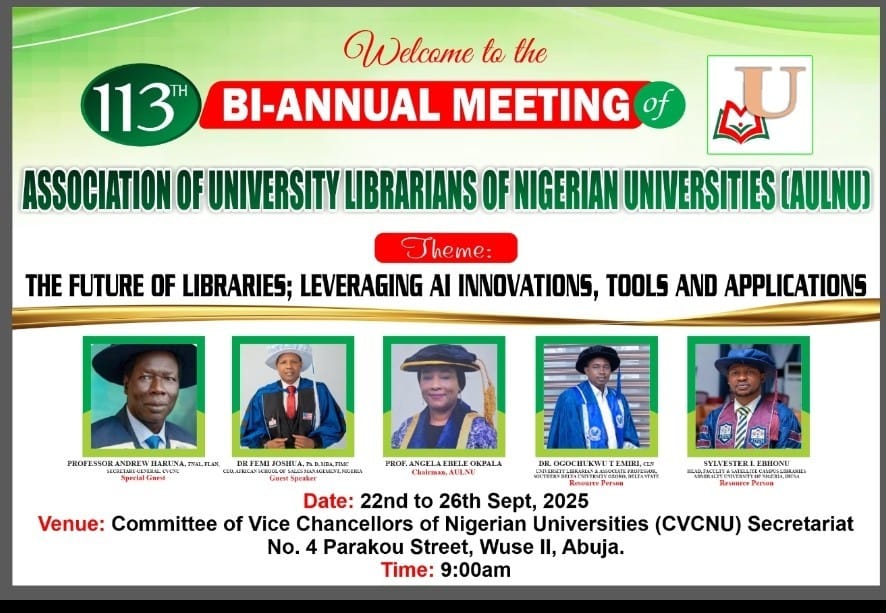
As someone who spent the past two days at the CVCNU Secretariat sharing ideas about Smart Libraries, the Bibliomentor and AI Reference Librarian Concepts, I was curious to learn about how the sessions I delivered resonated with participants. Dr. Azeez’s perspective exceeded my expectations.
What struck me most was how carefully captured both the content and the conversation experience we had. We treated technical aspects of AI applications, moved on to ethics, plagiarism detection, privacy concerns, research integrity, and so much more.
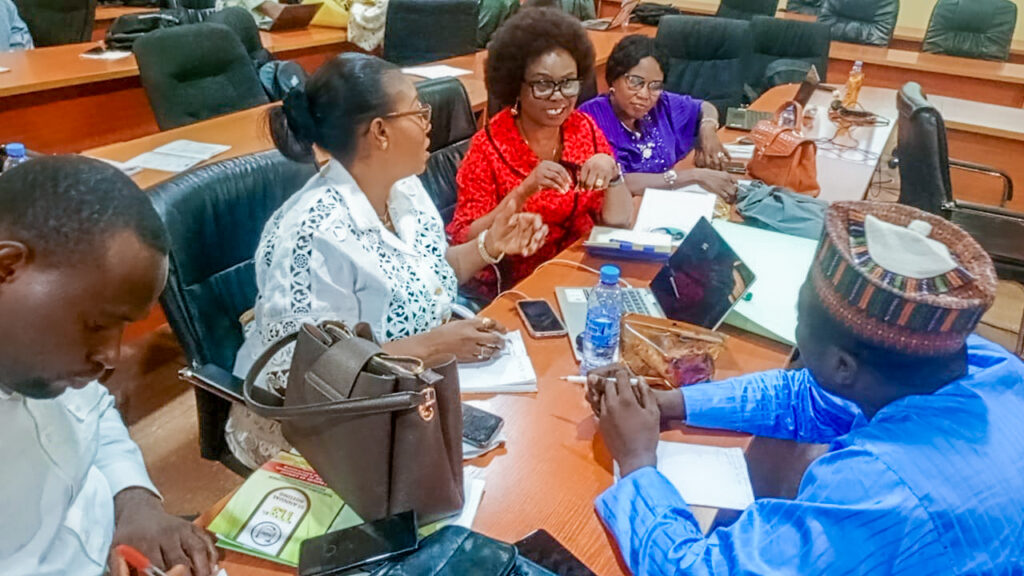
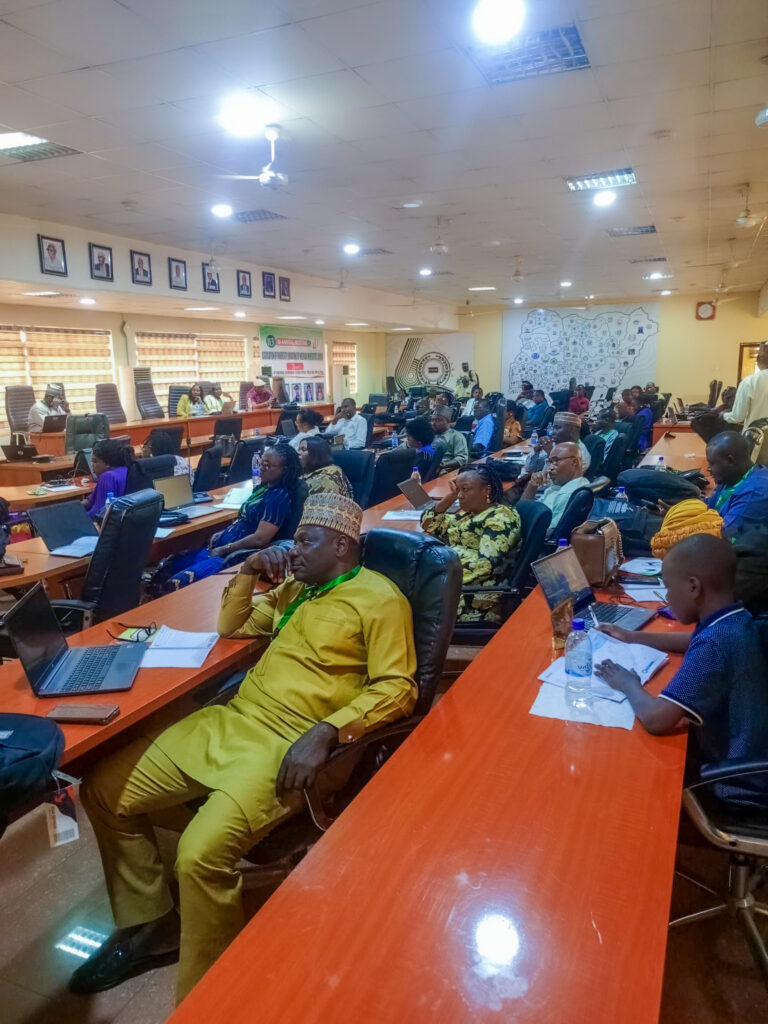
His version of the whole workshop experience captures clearly what I was trying to convey: Nigerian academic libraries can’t be passive observers in the AI revolution. As ‘Guardians of Knowledge’, we need intentional action.
Read Azeez’s full reflection here: https://wizlibrarian.blogspot.com/2025/09/association-of-university-nigerian.html
See also, News Report by Vanguard Newspaper on the event: https://www.vanguardngr.com/2025/09/aulnu-charts-roadmap-for-responsible-ai-in-nigerian-academic-libraries/
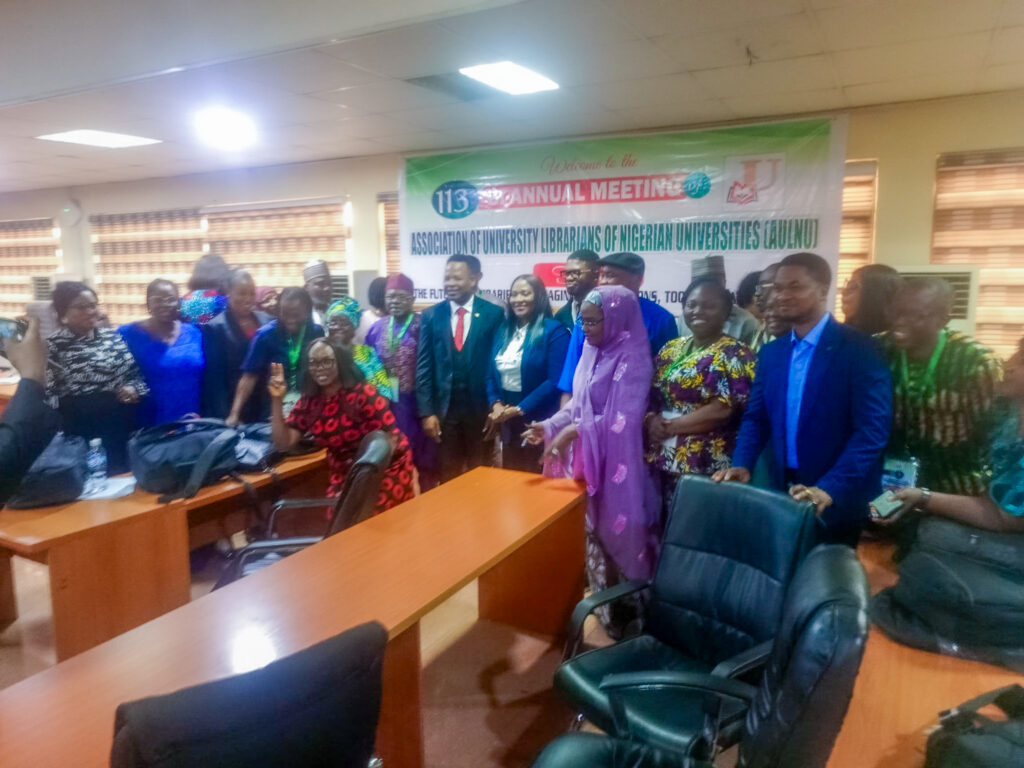
IFLA Election 2025 Results is out!
The results of the 2025 IFLA (International Federation of Library Associations and Institutions) elections are finally out! You can find the full details of the results on the IFLA website or any of the links below:
- IFLA Election Results 2025
- IFLA Election Results 2025 RC RDS
- IFLA Governing Board 2025-2027 Election Results
The leaders elected into IFLA play a huge role in making key decisions that impact libraries and librarians across the globe.
Here at Librarian Spotlight Africa (LSA) we would like to give a shoutout to the outstanding librarians who were elected, especially Te Paea Paringatai from New Zealand (President-elect of the Governing Council) and all those who will serve on the IFLA Sub-Saharan Africa Regional Division Committee and the Advisory Committee on Copyright and other Legal Matters.
People like Dr. Victoria Okojie (from Nigeria), Melba Sitwala (from Namibia) and Damilare Oyedele (Nigeria) others on the list have remained committed to advancing librarianship in Sub-Saharan Africa. Their dedication is inspiring, and seeing it reflected in the election results is something we can all celebrate.

The elected leaders are to serve from August 2025-August 2027. Let us all join in congratulating and wishing them the best in their new roles.
About Sylvester I. Ebhonu, CLN, amPAIDeF
YouTube Channel @ https://youtube.com/@thedigitallibr
Becoming a Digital Inclusion Advocate through the Library Internet Governance Ambassadors Program
On the 19th of March, 2025 I received an email, that I have been selected alongside librarians from 8 other African countries to shape the future of library digital inclusion across Africa through our participation in the Library Internet Governance Ambassadors Program (LIGAP), an initiative that’s powered by Library Aid Africa in collaboration with the Internet Society (ISOC). The Email: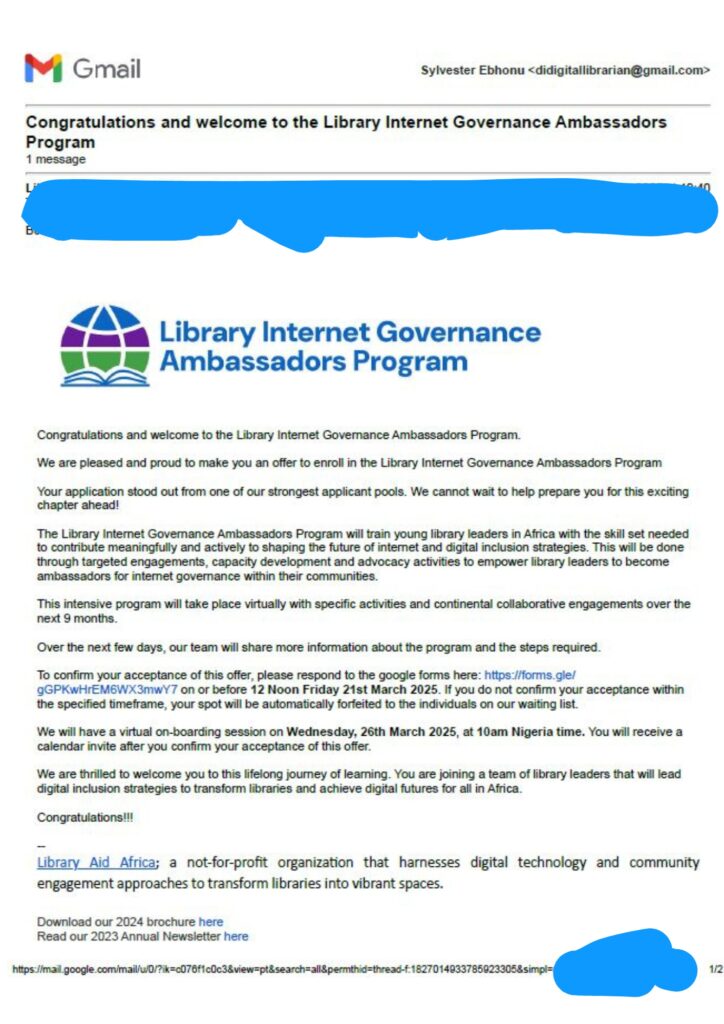
“Your application stood out from one of our strongest applicant pools… The program will train young library leaders in Africa with the skill set needed to contribute meaningfully and actively to shaping the future of internet and digital inclusion strategies.”
The email felt like a call to contribute to a greater purpose, and it wasn’t just an invitation for me, because being a part of purposes like this is what I’ve been passionate about and in a continent like Africa where digital gaps still exist, where we seem to be consuming more than we are creating, there is urgent need for programmes like this one to ensure inclusion all round. No doubts, libraries still remain one of the most trusted and accessible spaces for information retrieval and librarians are doing a good job in ensuring that. But, the internet has redefined our work from just managing bookshelves to curating digital resources, implementing digital literacy, etc. Despite these new roles, many of us have stayed on the sideline in big conversations like ‘how the internet is governed, how digital rights are preserved, and other policy issues.’ LIGAP is helping learn more about these issues.
At the end of this programme, my capacity to become a digital inclusion advocate, policy influencer, and community educators would have been strengthened.
The Onboarding and First Virtual Session
After the onboarding session held on March 26th, we officially kicked off our journey with the first collaborative session on 17th of April. It was more than just a meet-and-greet. As one of the few participants selected to present during the session, I delivered a brief talk titled:
“Libraries Thriving with New Roles in the Internet Era.” It was really inspiring to engage with other participants across Africa who shared similar passion. See the presentation slides below:
Looking Ahead
Sometimes we find ourselves as librarians talking about the need to be “relevant” in the digital age, but what I believe Librarians must begin to do is “influence”. For instance, as the program continues, I’m looking forward to more collaborative learning, strategic engagements, and practical advocacy that will strengthen my ability to represent library voices in internet policy conversations in my country, starting by influencing my institution.
If you’re passionate about internet policy or libraries and digital inclusion. I invite you to follow this journey. There’s so much more to come. I will keep updating this particular blog post and share my reflections until the programme is over.
You like that?
About Sylvester I. Ebhonu, CLN, amPAIDeF
Youtube Channel @ https://youtube.com/@thedigitallibr
FCCPC Dragged Meta to Court and Won, but what’s Next?
Recently, the Federal Competition and Consumer Protection Commission (FCCPC) made headlines for winning a case against Meta (the parent company of WhatsApp, Facebook, and Instagram). The Competition and Consumer Protection Tribunal (CCPT) upheld a $220 million fine that was earlier imposed on Meta, including an additional $35,000 that was awarded to the FCCPC for the cost of the investigation, which started in year 2020. More details on FCCPC Website.
These issues started because WhatsApp ‘allegedly’ refused to cooperate with FCCPC and they have responded to the decision of the CCPT.
- But by this update, is it possible that Meta will stop doing business with Nigeria or they will just go ahead and pay these fines?
- Is there a future where WhatsApp might stop working in Nigeria if this battle continues?
While the effort of FCCPC is commendable, these ‘tech big players’ sometimes comply and other times push back hard. But at the end of the day, it is consumers like you and I that gets caught in the middle.
That’s why this article is more of a wake-up call. Let us be more cautious with how we use online platforms. Yes, we need to communicate, yes, we need these services and tools, but let’s not forget that we’re not entirely in control, and even though they make us read long Terms/Agreements before using their apps, we still have no complete idea of what ‘they’ do with our data.
So, What do you think, should Nigeria push harder or back off? And with everything happening in the digital world right now, there is AI, etc. one can’t help but wonder: are we gradually losing control over our digital lives?
Sylvester I. Ebhonu, CLN, amPAIDeF
Youtube Channel @ https://youtube.com/@thedigitallibr
#DataPrivacy #AIGovernance #InternetGovernance #Policy
This Shouldn’t be Happening at the National Library of South Africa
I just read about the unfolding situation at the National Library of South Africa (NLSA), and I’m very concerned about it. The leadership position of the NLSA (National Librarian/CEO) was recently re-advertised. But this time, the title “National Librarian” was quietly dropped, and Library and Information Science (LIS) qualifications have been downgraded from a requirement to just a “preference” according to a petition championed by Lesetsa Sanele
But, how can a National Library be headed by someone who is not even a librarian? Is this not a huge blow to the integrity of the LIS profession? Honestly, the role of who heads a National Library is too strategic to be treated like any another administrative job. Imagine appointing a Doctor as a President of an association of Lawyers? Through conversations on the Librarian Spotlight Africa (LSA) platform, we’ve seen this kind of thing happen in other countries too, including here in Nigeria. And every time, actions like these just weakens the system. Our Libraries deserve better!
This isn’t just a South African issue, it affects all of us who care about the future of libraries, access to information, and preservation of Africa’s heritage. In the interest of transparency and accountability, the petitioners are urging the NLSA Board to take immediate action to address these concerns.
1. Immediate public release of the names, qualifications, and professional backgrounds of all current NLSA Board members.
2. A firm commitment that the future leadership of the NLSA, specifically the National Librarian/CEO, will be selected based on professional LIS standards.
3. A complete stop to the appointment of the National Librarian who is not a librarian
Interestingly, this is not the first time an action is taking to discourage such moves. On 17th of March 2025, the Library and Information Association of South Africa (LIASA) raised the alarm in a post on their official Facebook page, reminding everyone that “we’re seeing a repeat of what happened in 2019”when the NLSA Board also attempted to appoint a non-librarian to lead the National Library.
If we’re going to build strong knowledge institutions in Africa, then we need the right people in the right positions.
So I’m lending my voice by signing this petition, and I’m encouraging you to do the same. As of today, 12th April, 2025, over 800 people have already signed, and we need to push it to 1,000 and even beyond. Librarians leading libraries. Period. Sign the Petition here:
Sylvester I. Ebhonu, CLN, amPAIDeF
Youtube Channel @ https://youtube.com/@thedigitallibr
#StandWithNLSA #LibraryLeadership #AfricanLibraries #LSA
WHY PROFESSIONAL EMAIL IS INTEGRAL TO INSTITUTIONAL IDENTITY?
An average email user today will tell you they prefer a Gmail to a Yahoo mail, and the reason is not far fetched. 80% of Entrepreneurs prefer Gmail to Yahoo mail. Signing up for a Gmail Account gives you access to a wide variety of Google products and services that can be of help, regardless of the kind of business you do. But as an institution or a company, have you considered the implication of not having a professional email address? Do you know there are implications for letting your staff use their personal email for official communications? A personal Gmail or Yahoomail address is different from a professional email address.
Every business that takes branding or its professional identity serious ensures that official email service forms an integral part of their institution or organization’s identity. Whether it’s an academic institution or corporate organization or SMEs, the importance of maintaining a professional and branded email system cannot be overemphasized. Many organisations, and a few institutions today, seem to overlook this important aspect of their digital identity, falling back to personal email accounts for professional correspondence. This oversight can lead to security risks, missed opportunities and reduce the credibility of such organizations and institutions. This ‘looong’ blog post therefore seeks to explore some of the benefits of professional email services and how they contribute to the identity and functionality of an organization, whether its educational or business.
WHAT IS A PROFESSIONAL EMAIL?
According to Zoho Mail, “A Professional email address is the email address you use primarily for your work related communication.” Ther email address usually include the name of the company or institution you work for. So for example, instead of using a free service like Gmail or Yahoo (e.g., amaka.okon@gmail.com), an organization or institution might issue their employees or students with an email address that ends with the institution’s domain name, for instance amaka.okon@adun.edu.ng, in some other cases we see something like library@adun.edu.ng (that’s if it is intended to serve a department like a Library or Registry, etc).
So, why is this worth learning about? Ideally, professional email (custom domain), which in this article can be used to represent institutional/organizational/official or business email helps to give an impression of trustworthiness in your communications. It plays a major role on how your institution is perceived. No doubt, Gmail and Yahoo provide free services, but they don’t give the impression of professionalism especially in the academic system. I could use my personal Gmail address for my personal communication with family and friends, but when communicating on behalf of my institution or organization with a Vendor, or a Researcher in a collaborative project, or an editor of a journal, it raises some questions about reliability and security. While an Institution cannot have administrative control over personal emails of employees or students, professional email services come with these features, hence they are recommended and used widely for institutional/organizational communications.
WHY SHOULD ORGANISATIONS/INSTITUTIONS CARE ABOUT PROFESSIONAL EMAIL?
In an ideal situation, your institution or organisation’s email would be the first point of contact with stakeholders and all those you wish to have any transaction or collaboration with. It could be a Prof. emailing his project student, or a researcher submitting an article to an international journal, or perhaps applying for a grant. Truth is, you don’t want to give a wrong first impression that you are not a legitimate member of staff or student of that institution, especially when dealing with external bodies. This is why institutions and organizations need to ensure they not only provide professional email for their communities, but also ensure the system is sustainable. Here are some specific reasons why you should care about Professional Email as an Entrepreneur, Academic or Administrator:
- For Security: Many organisations today face the risk of email security. With increase in phishing attacks and data breaches, using secured platforms like Google Workspace or Zoho for example, can help institutions safeguard communication and protect emails with encryption and other safeguarding features that can prevent unauthorized access.
- For Branding and Email Customization: Email service providers usually allow subscribers to customize their email signatures, programme auto-responders and a variety of other custom features which can help in enforcing an organisation’s brand identity.
- Professionalism and Trust: Think about this for a moment. If you receive an email from renoomoraka@yahoo.com, and another email from reno.omoraka@hisinstitutionname.com, don’t you think they both will convey different impression about professionalism? Receiving an email with your institution’s domain name gives people no reason to doubt, the recipient immediately builds trust.
- Collaboration and Efficiency: Many of these professional/Institutional email service providers offer a suite of productivity tools that help institutions or business streamline their communication and collaboration. Some of those features, depending on the platform (e.g. Google, Zoho, etc) features calendars, task management tools, Virtual meetings, project management tools, file sharing features, etc. All these features are needed especially in an academic setting where faculty, students, and staff must collaborate on various projects, from research to curriculum development. Gone are the days where students will have to print volumes of their project works repeatedly for correction, when all that can be achieved via email or a collaborative platform like Google.
flexible pooled storage per user that is shared across the organization.
- Administrative Control: With a company email address, you have control over the accounts. If an employee leaves, you can ensure business continuity by redirecting their emails or reassigning the email address.
The following are other benefits of a Professional Email Service as recommended by Zoho, (an Indian multinational technology company that makes computer software and web-based business tools, popularly known for their mail service, as well as Office Suite):
- Branding
- Builds trust
- Authenticity
- Reliability
- Ease of recalling
- Better deliverability and reputation
I hope you’re not getting bored reading this already?
Having looked at the benefits, it’s also important to understand what’s at stake when institutions neglect to adopt a professional email system.
WHAT IS AN INSTITUTION/ORGANISATION RISKING WITHOUT OFFICIAL EMAIL SERVICE?
The risks of not using a professional email service will not be over-emphasized in this article. So, let’s just explore these three:
- Risk of being Vulnerable to Security: In most sectors in the economy today, Email remains the main medium for communication, and this makes it a main target for cyber attacks. Who knows, could this be why some institutions in Nigeria prefer the use of memo, notices board and wasting a lot of print resources rather than leveraging digital? That’s a story for another day. The point, however, personal email accounts as earlier explained are more exposed to threats than professional email systems. Let’s describe what this means: The email of a prominent member of an institution for example has a high chance of data breach and hacking if that Staff operates a private email on behalf of the institution. This is not to say that having a Professional Email Service in an organization shields you permanetly from cyber threats. A statistics report by Fortra shows that one of the most potentially damaging hacks, Business Email Compromise (BEC) continues to cause billions of damage every year. See Report below:
- Risk of inefficiency in Communication: Institutions today, who allow their staff to engage in official communication, research and transactions without a centralized email service risk losing out on important details. Think about the email threads that will get lost if a staff stops working for you or important emails that a staff may receive and not pay attention to. A centralized email system allows the organization to have an efficient storage for communication.
- Risk of losing Credibility: Without a professional email system, an institution could be compromising their reputation. Emails from free platforms, like Gmail or Yahoo, can give the impression that the organization is unprofessional or not serious. In the academic setting for example, this is not even negotiated, many institutions will not accept your application for grant, for support or publication without your communication coming with an official identity.
Click to Learn more about “why employees should never use personal email accounts when conducting business.”
MAXIMIZING THE VALUE OF YOUR INSTITUTIONAL EMAIL: BEST PRACTICES
For users (employees, academicians, students, etc) to fully capitalize on the advantages of a professional email system, institutions and organizations should adhere to the following best practices:
- Develop clear email policies that should outline the expectation of professional communication by your users. For instance, using ‘Institutional Emails only for work-related communications and for professional relationships.’
- Enjoy your investment! Maximize the full potential of your email service provider. Many institutions only use the email service, and abandon other integrated productivity and project management tools like we mentioned above earlier. Most times, your payment covers for all these, but you don’t maximize them. For instance subscribing to Google workspace plans allows you to use google meet and record your meetings.
- The CISA recommends that we use strong passwords to keep threat actors from stealing our information. Regularly updating your passwords, enabling two-step verification and educating staff and students on email security are also important steps in maintaining a secure email system.
CONCLUSION
This is not an article intended to market any Email Service Provider, but one that hopes to enlighten business owners, administrators, academics, key stakeholders of organizations and institutions that a Professional Email is not just a means of communication, but that it forms an integral part of an institution or organizations identity.
Bear in mind the cost implication for adopting a professional email system is not ‘small money’. You may wish to consult ICT experts to recommend the best service if you’re considering setting up one for your establishment. That singular move can boost your organisation’s credibility, ensure security, and promotes efficiency. Institutions that prioritize an efficient email system are positioning themselves for success.
If your organization or institution has assigned you an official/institutional email, please share with us your experience using it in the comments.
I tested it! With a Good Prompt ChatGPT can now Turn your Photo into 3D or Cartoon
How to Use Prompts to Turn Your Photo into a 3D, Cartoon, or Anime Image with ChatGPT
By Sylvester Ebhonu (TheDL)
Prompting is all about being descriptive, expressive, and creative. Unlike the days of Google Search Engines, where we cared so much about Keywords and Boolean search, getting results using Reasoning Engines like ChatGPT, BingAI, Midjourney, etc requires you to be able to expressively describe what you want. Being descriptive doesn’t mean you have to write so much grammar. Most times, you just need a well-crafted sentence. Even if you use your local language, as long as the model understands it, it will respond based on your instructions. Just as I’ll share with you shortly, you’ll see that just a sentence is enough to do the magic.
If you’re creating 3D-style images, it’s important to know the specific visual style you want your image to reflect. The styles recommended below are currently trending online, especially since the “Create Image” function was added to the latest ChatGPT updates. According to Reuters, Ghibli effect: ChatGPT usage hits record after rollout of viral feature
What You Can Now Do with ChatGPT’s Create Image Feature:
Users can now:
- Turn their uploaded photo into a cartoon, 3D style, anime, or a sketch.
- All you need to do is upload an image and prompt ChatGPT to transform it based on your preferred style (let’s say Pixar, Disney, Tom and Jerry, etc.).
As OpenAI described in one of their product releases on 25th of March, 2025: “Creating and customizing images is as simple as chatting using GPT-4o — just describe what you need, including any specifics like aspect ratio, exact colors using hex codes, or a transparent background. Because this model creates more detailed pictures, images take longer to render, often up to one minute.”
How to Transform Your Photo into a 3D or Cartoon-Style Image
Step 1: Upload your photo (In this case I Uploaded the photo on the right below).
Step 2: Use a descriptive prompt like mine:
The Prompt: “Create a 3D animated portrait in a stylized, cinematic animation style reminiscent of Pixar with a touch of DreamWorks charm. The subject should closely resemble my reference photo, wearing sleek glasses and smiling.”
Step 3: Give it a minute or 2 and your result is on the way (See my result on the left below, with a little adjustment on the contrast)
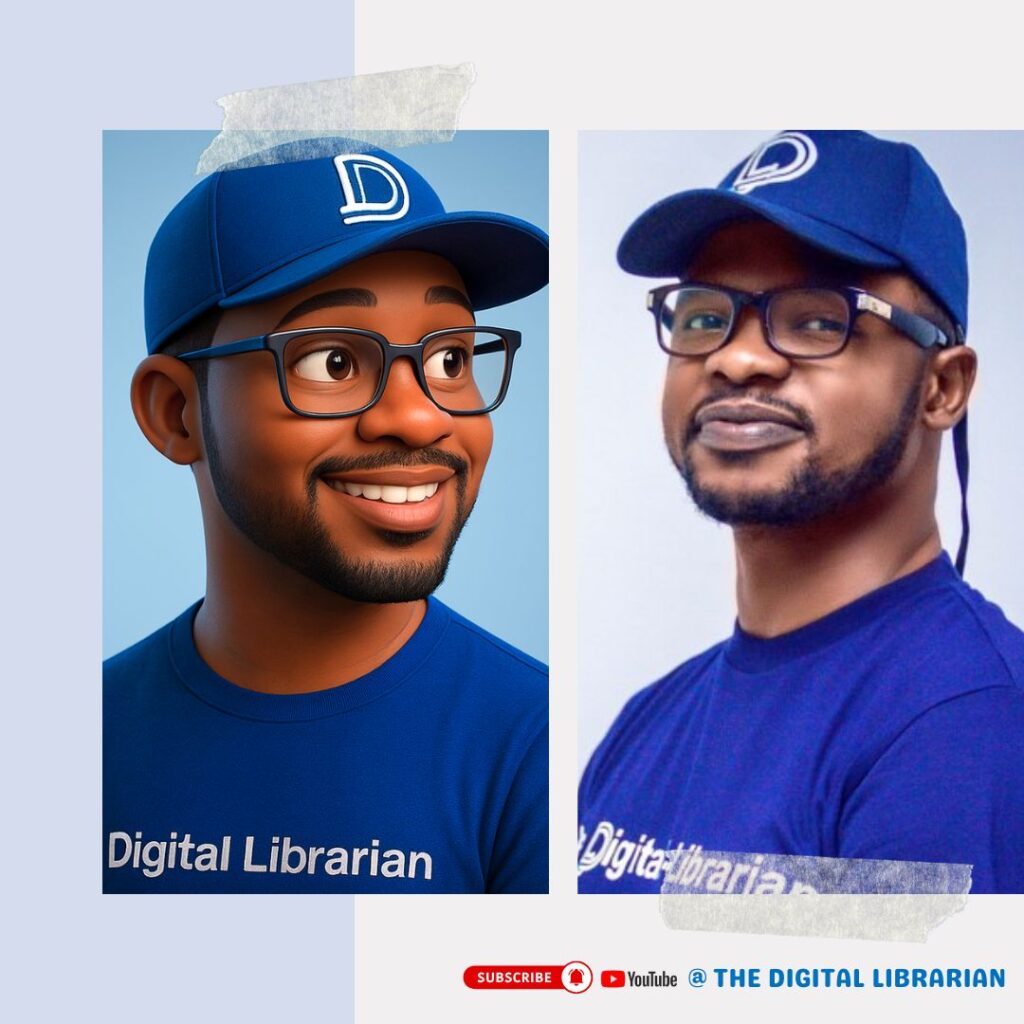
Five Prompt Styles you should Try out
Using these prompt ideas can help you generate creative images for profile pictures, storytelling, or content creation across different fields. The styles are universally relatable:
Studio Ghibli Style: This prompt style is inspired by the iconic Japanese animation studio behind movies like Spirited Away, Howl’s Moving Castle and the likes. You can try prompts like:
-
- Create an anime portrait in the style of Studio Ghibli, with warm lighting and expressive eyes.
- Turn this photo into a Studio Ghibli-style character with a magical forest background.
Pixar Animation Character Style: It’s known for its 3D animated look, big shiny eyes, and smooth textures. Try a prompt like:
-
- Turn this image into a Pixar-style animated character with a joyful expression and a colorful background.
LEGO Minifigure Version: They are blocky in nature, also have toy-like appearance and colourful too. Try this prompt:
-
- Reimagine this person as a LEGO minifigure standing in a LEGO city.
Simpsons-Style Character: This prompt transforms your image into a 2D cartoon style from the popular ‘The Simpsons TV series’. The Characters are usually with Yellow skin, bulging eyes, with over exaggerated expressions, looking really very funny in appearance. Prompt Example:
-
- Transform this image into a character from The Simpsons, with the classic yellow skin and cartoon vibe.
Disney Character Concept: This prompt style is inspired by popular princess/prince/fantasy characters we watch in movies like Frozen, Aladdin, etc. They are sort of fairytale-inspired portraits. Try a Prompt like:
-
- Turn this photo into a Disney princess-style character in a magical forest setting.
- Make me look like a Disney/Pixar character.
Some other Prompts to explore with
- Create a superhero cartoon version of this person, with a cape and glowing eyes.
- Turn this face into a comic book hero illustration.
- Turn this photo into a Renaissance-style oil painting.
What do you think about this latest update in ChatGPT?
Right now, OpenAI’s ChatGPT offers some very impressive features, from text, voice, and image generation to this new “Create Image” function, you enjoy them more on ChatGPT Plus, but the free option is honestly doing so much already.
But the big question is ‘How long will this last? Will OpenAI keep being generous as they have been since year 2022, or will they eventually switch to the model we’ve seen with other platforms, where you only get limited freemium access before the real features you are interested in gets locked behind a paywall?
Only time will tell. But while it lasts, don’t you think we should make the most of these tools ethically and create content that makes sense?
Don’t forget to share if this post helped you in any way!
Watch a Step by Step Video on How to Create your Cartoon or 3D Image on my Channel:
Your coach and friend,
Sylvester I. Ebhonu, CLN, amPAIDeF
Youtube Channel @ https://youtube.com/@thedigitallibr

